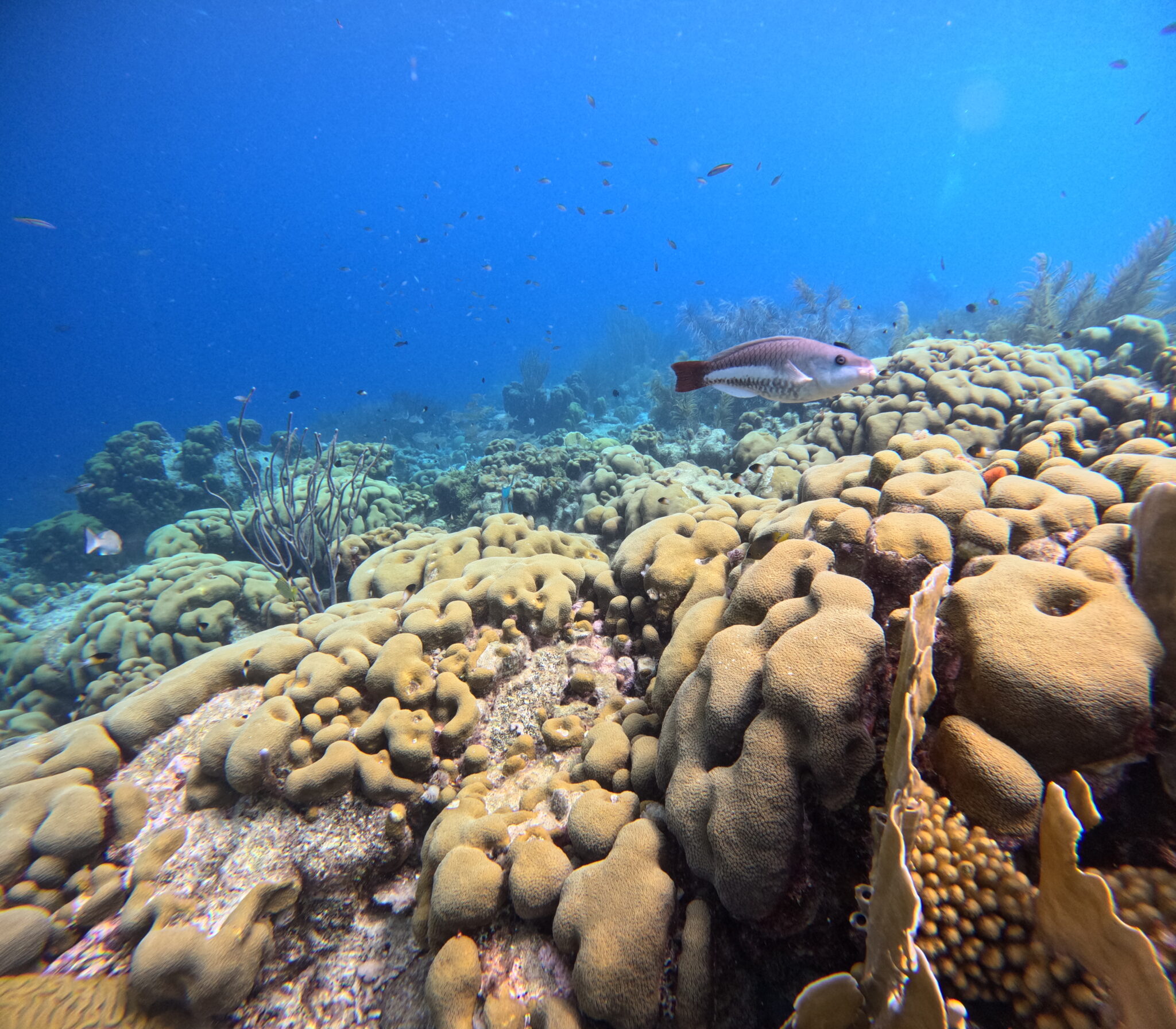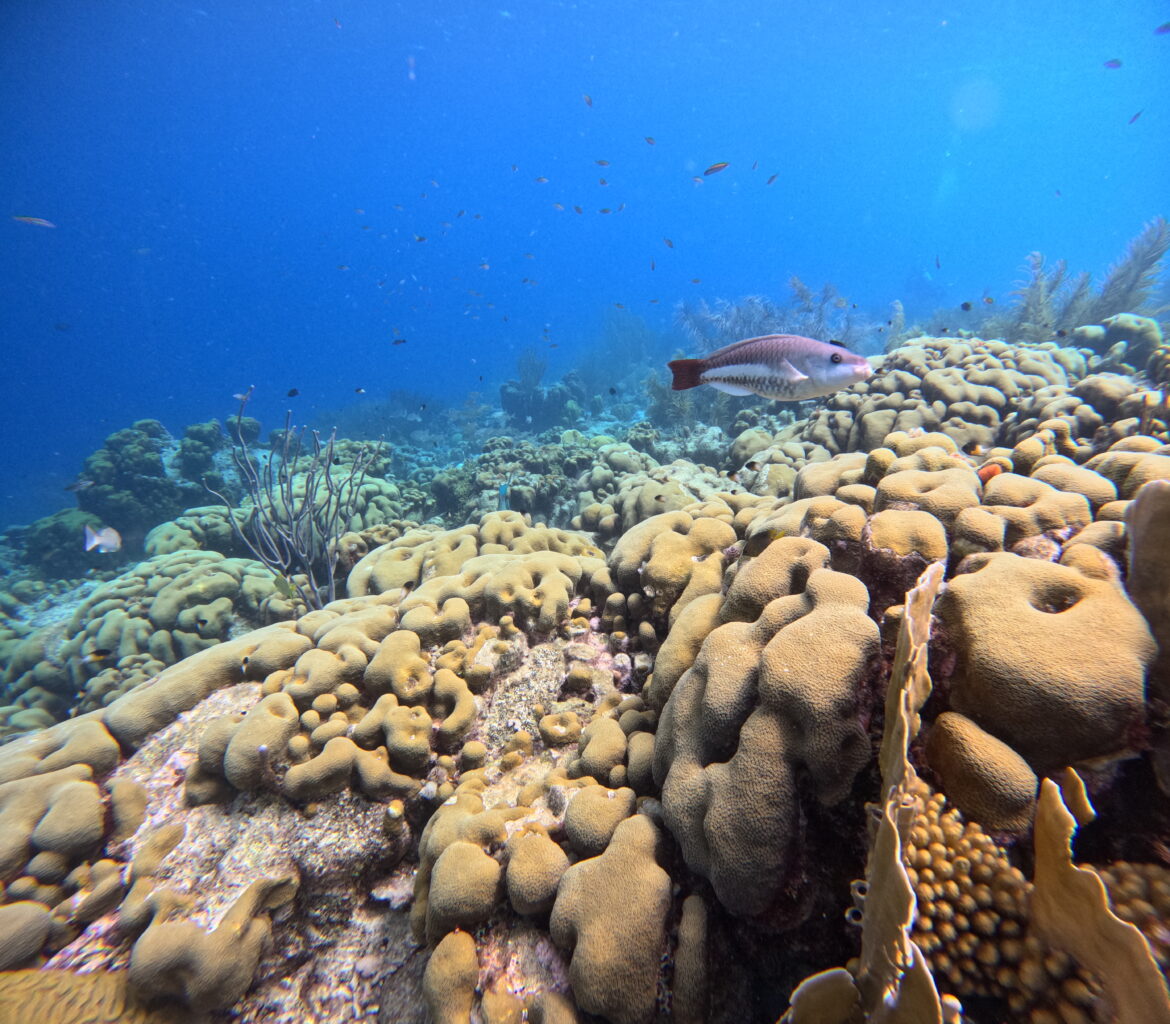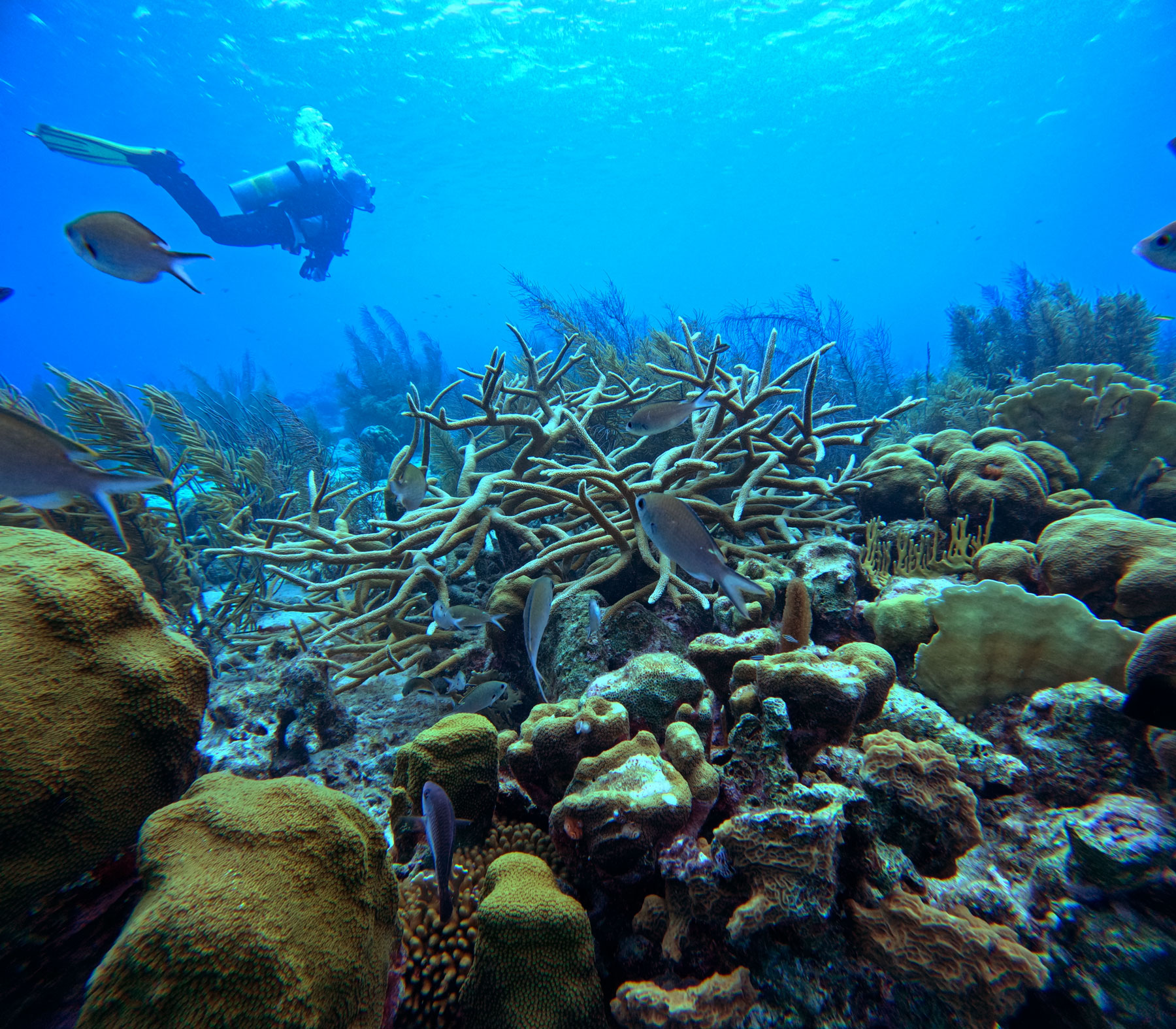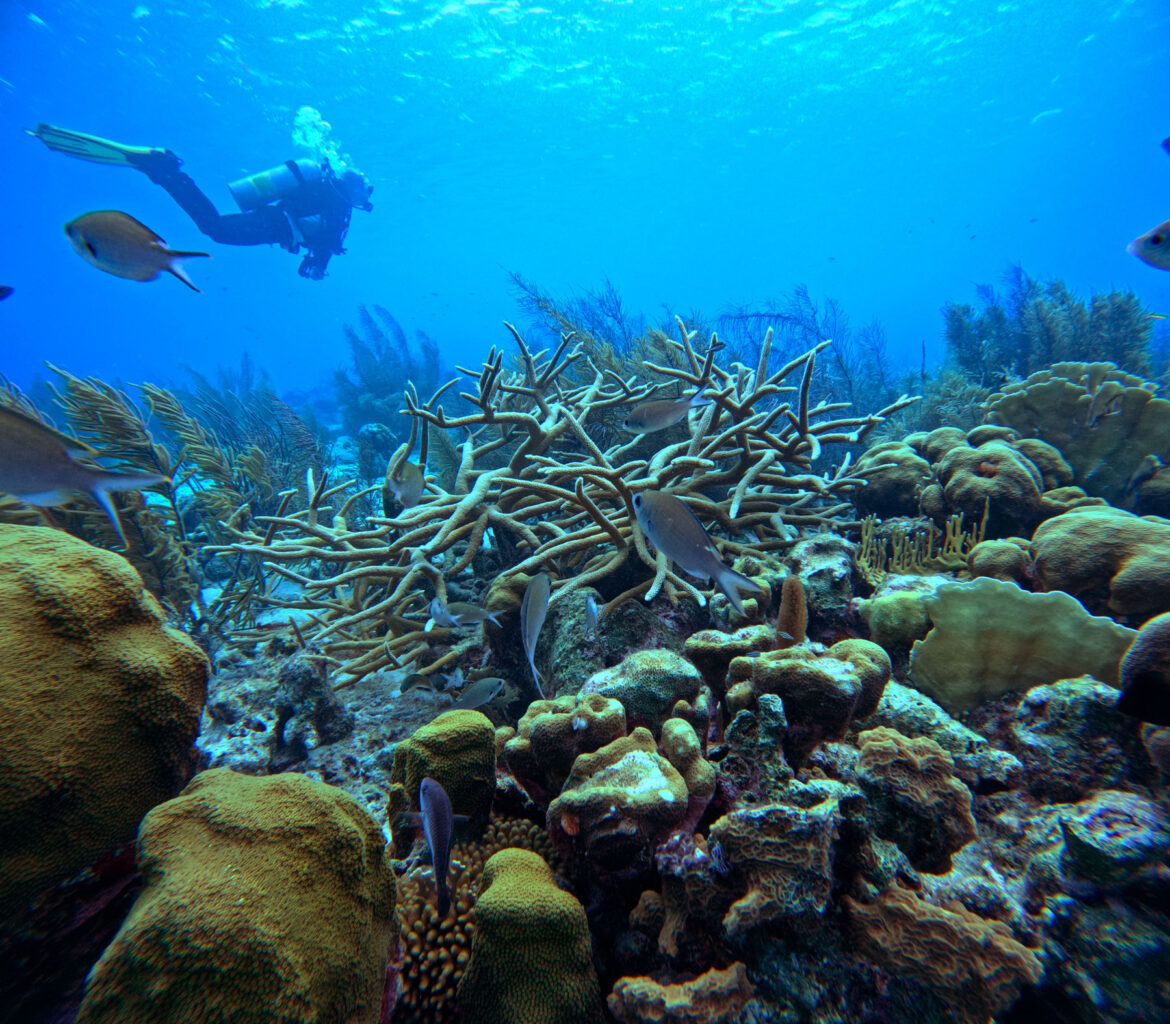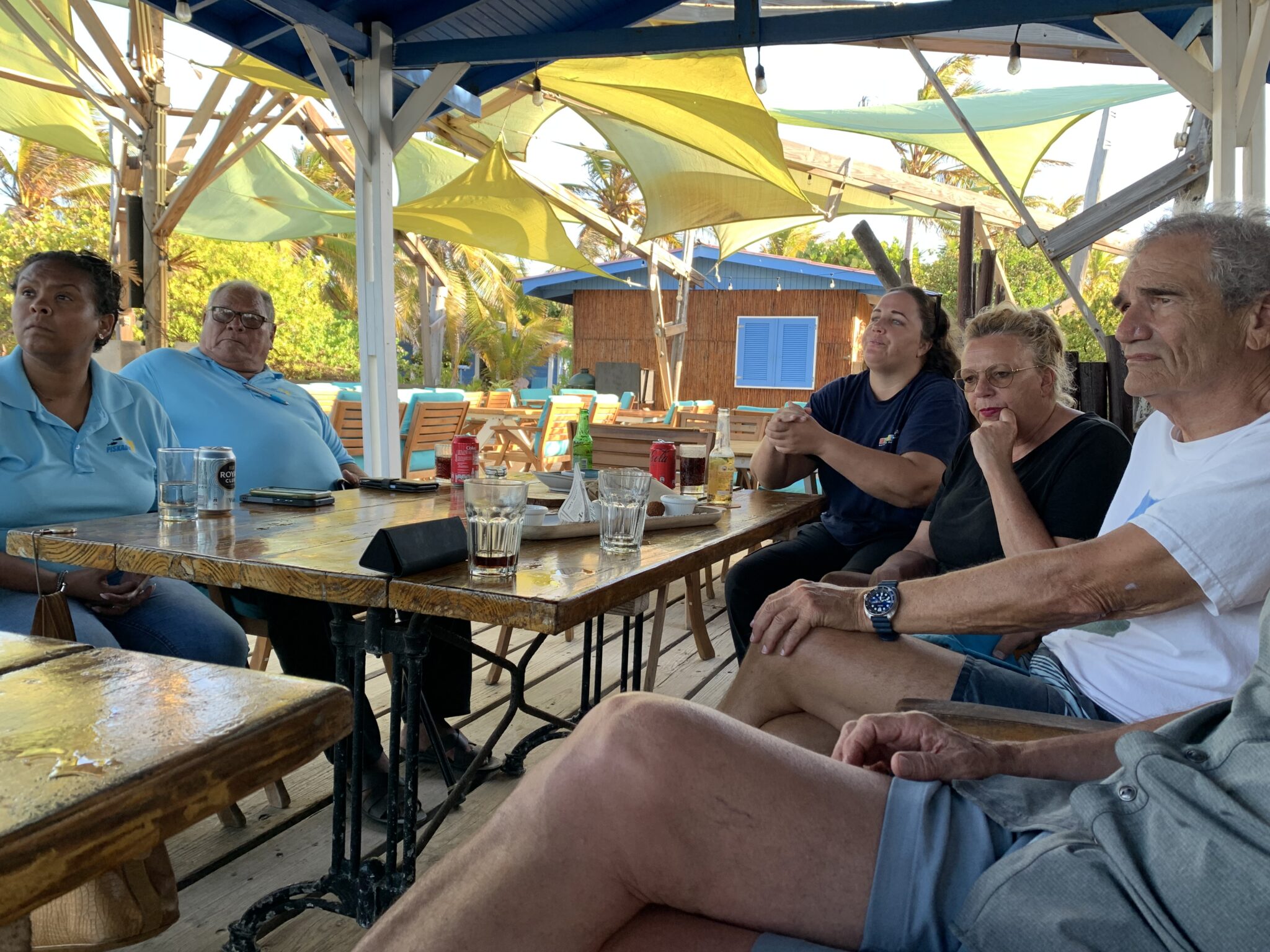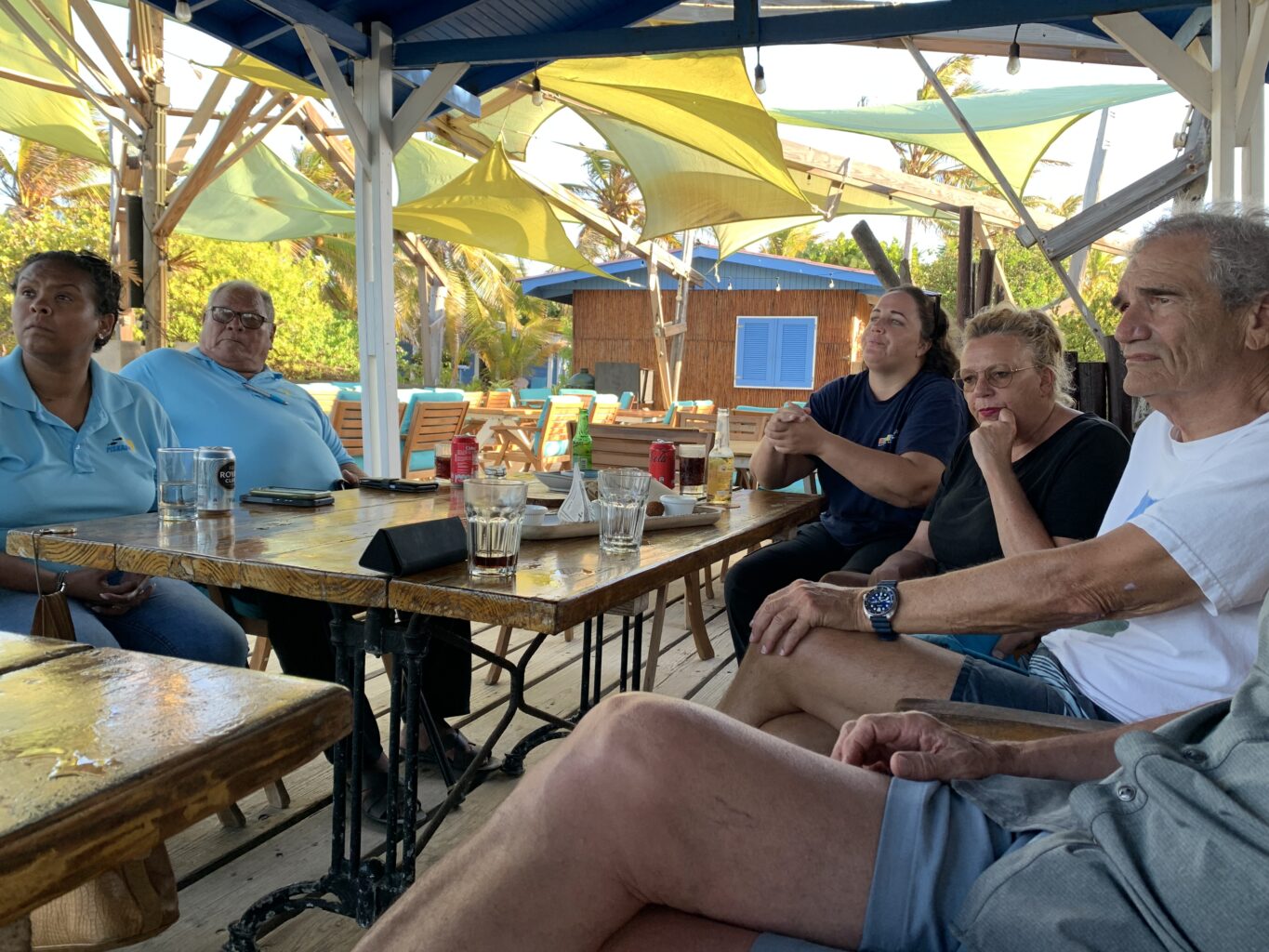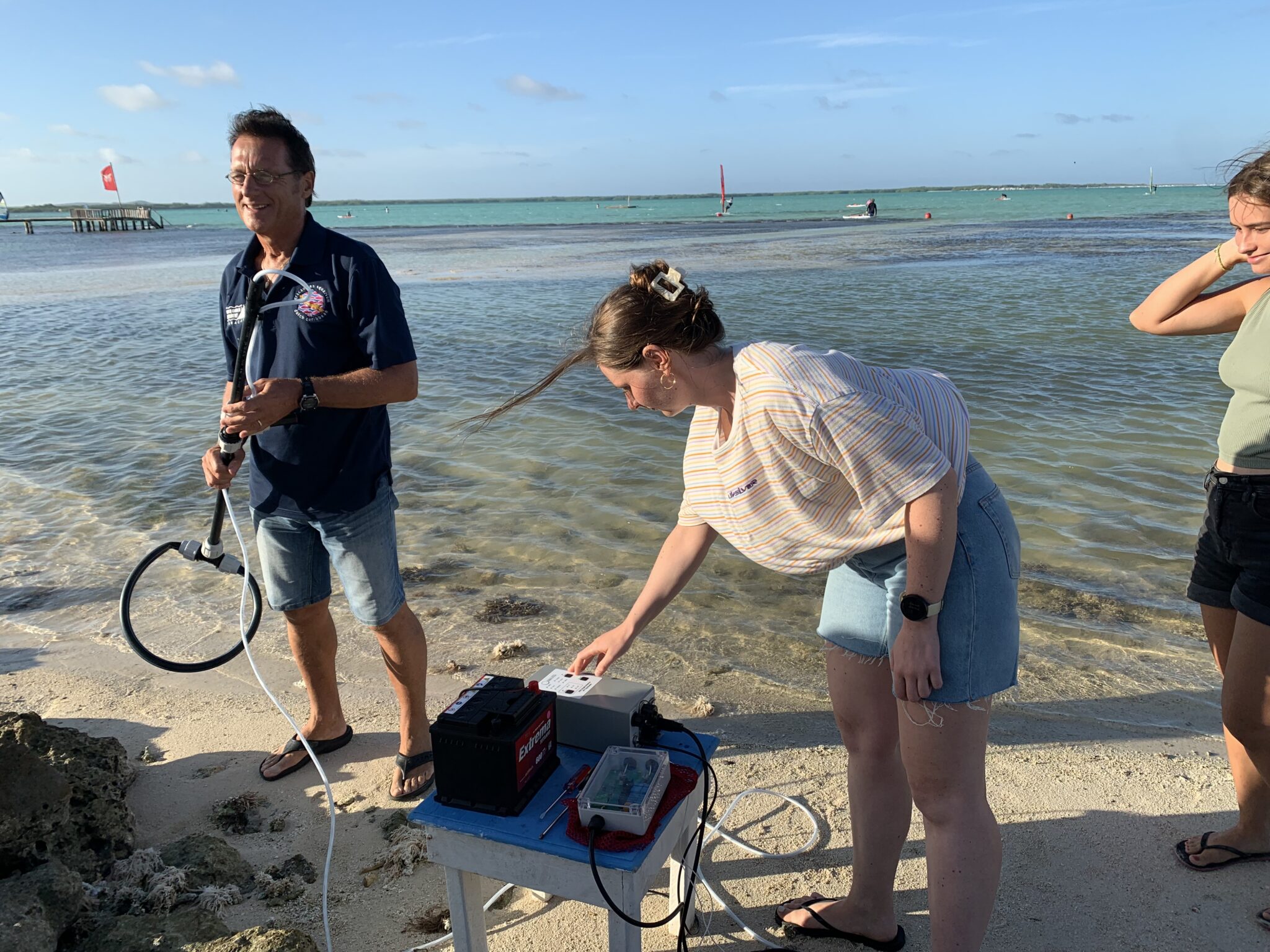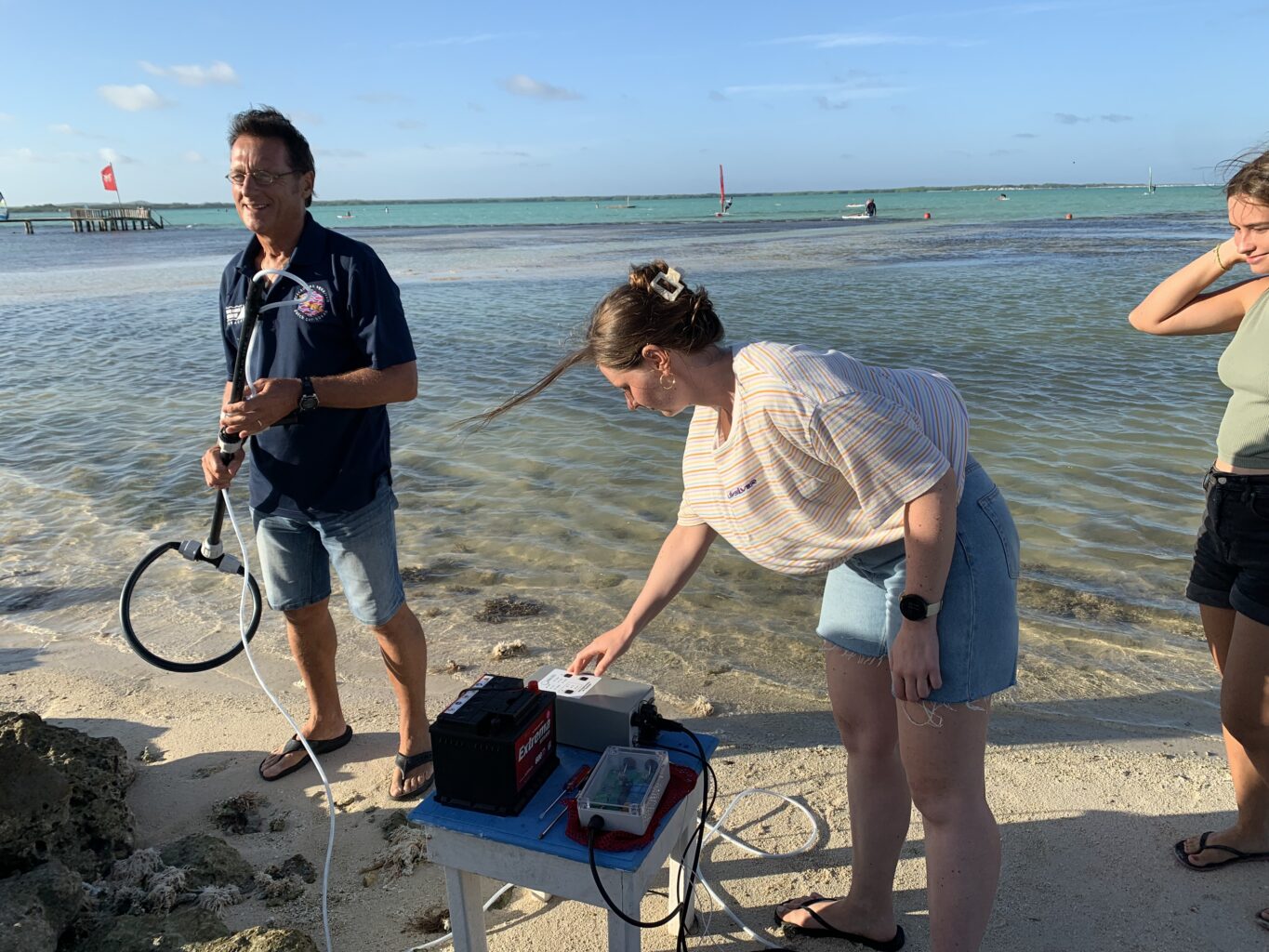The beautiful Queen conch, a mollusk that can grow almost a foot long and weigh up to six pounds, is a symbol of the Caribbean. It also keeps seagrass and coral reefs healthy by grazing on macro algae and organic matter. But the species is prized both for its meat and for its glossy shells, and overfishing has led to significant population declines. The species is now classified as threatened. On Bonaire, adults and juveniles are illegally harvested—especially in shallow Lac Bay, where they are easy to gather.
To restore the once-large Queen conch population in the bay, cultured year-old juveniles will be put into the existing natural populations. Lac Bay, which covers 1,730 acres and has mangrove and seagrass habitats, is a refuge for other threatened and endangered species. It is part of the Bonaire National Marine Park and is a designated wetland of international significance.
Our project partner, the Bonaire National Parks Foundation, manages Bonaire’s nature parks for the government. They will reach out to educate local fisherfolk, park rangers, and schoolchildren. They will also hire fisherfolk, who know more about the Queen conch than anyone else on the island and have a strong incentive to see that the fishery is restored, to monitor and protect the outplanted juveniles. This makes use of their skills and reduces the financial pressure that leads to overfishing.
With a successful repopulation effort, the Queen conch population in Lac Bay could be large and stable enough to support sustainable harvesting in five to 10 years. This would not only give people local, high-quality protein, but also bring back a creature that has rich cultural and ecological significance in the islands.


